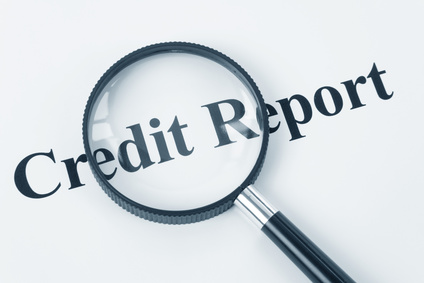The U.S. Court of Appeals for the Second Circuit recently affirmed entry of summary judgment in favor of a prominent media and information firm against a job seeker’s claims that it furnished false information in a purported “consumer report” obtained by a prospective employer in alleged violation of the Fair Credit Reporting Act. In so ruling, the Court concluded that the media company was not a “consumer reporting agency,” because it did not intend to furnish “consumer reports” through its services, and thus was not subject to the FCRA, 15 U.S.C. § 1681, et seq. A copy of the opinion…
Posts tagged as “FCRA”
In an unpublished ruling, the U.S. Court of Appeals for the Eleventh Circuit recently affirmed dismissal of a borrower’s putative class action suit filed against a mortgagee alleging violations of the Fair Credit Reporting Act for failing to conduct a reasonable investigation into disputed information reported to the credit reporting agencies. In so ruling, the Court concluded that the borrower failed to demonstrate that a reasonable investigation would have uncovered an inaccuracy in certain information provided by the mortgagee to the credit reporting agencies, and the mortgagee had no duty to investigate a separate dispute because the borrower did not…
The U.S. Court of Appeals for the Seventh Circuit recently held that the trial court did not abuse its discretion when it reduced the plaintiff’s counsel’s $187,410 fee claim to $10,875 after the debtor recovered only a $1,000 statutory damages award on his federal Fair Debt Collection Practices Act claim at trial and the debt collector had issued a Rule 68 offer of judgment early in the case that exceeded the amount the debtor recovered. A copy of the opinion in Paz v. Portfolio Recovery Associates, LLC is available at: Link to Opinion. After a debt collector purchased a debtor’s…
The U.S. Court of Appeals for the Fourth Circuit recently held that a trial court lacked jurisdiction over a claim for violation of the federal Fair Credit Reporting Act involving a student loan administered by the U.S. Department of Education because Congress did not waive sovereign immunity for suits under FCRA. A copy of the opinion in Robinson v. U.S. Department of Education is available at: Link to Opinion. This appeal arose from the plaintiff’s claim that the government agency responsible for administering the federal student loan program violated FCRA, 15 U.S.C. § 1681, et seq. The plaintiff alleged that the government…
The U.S. Court of Appeals for the Ninth Circuit recently held that a government sponsored enterprise (“GSE”) that licensed underwriting software to lenders was not a consumer reporting agency under the federal Fair Credit Reporting Act. In so ruling, the Ninth Circuit determined that the GSE did not assemble or evaluate consumer information to furnish consumer reports to third parties. Instead, the GSE merely provided software to allow lenders to assemble or evaluate such information. A copy of the opinion in Zabriskie v. Federal National Mortgage Association is available at: Link to Opinion. The plaintiffs had a short sale after defaulting…
The U.S. Court of Appeals for the Eighth Circuit recently vacated a trial court’s order approving a class action settlement agreement because the trial court did not first determine whether the FCRA class representative had standing. In so ruling, the Eighth Circuit held that a court’s approval of a settlement was a judgment, which is invalid unless the court has Article III standing and subject matter jurisdiction. A copy of the opinion in Schumacher v. SC Data Center, Inc. is available at: Link to Opinion. The plaintiff filed a putative class action in Missouri state court alleging the defendant violated the…
The U.S. Court of Appeals for the Eleventh Circuit recently held that the reporting of a mortgage account as past due and delinquent during a forbearance plan was neither inaccurate nor materially misleading under the federal Fair Credit Reporting Act (FCRA), 15 U.S.C. § 1681, et seq. A copy of the opinion in Felts v. Wells Fargo Bank, N.A. is available at: Link to Opinion. The plaintiff borrower lost her job and enrolled in an unemployment forbearance plan with her mortgage loan servicer. The forbearance plan called for “monthly forbearance plan payments” of $25 for a period of six months. The…
The U.S. Court of Appeals for the Ninth Circuit recently held that a plaintiff did not allege Article III standing for her claim under the federal Fair Credit Reporting Act (FCRA) where there were no specific factual allegations plausibly tying the inclusion of her debit card expiration date on her receipt to her alleged identity theft. Moreover, the Court held, leave to amend would be futile because this action against the National Park Service was barred by sovereign immunity. Accordingly, the Ninth Circuit affirmed the ruling of the district court dismissing the complaint. A copy of the opinion in Daniel…
In a putative class action alleging violations of the federal Fair Credit Reporting Act, the U.S. Court of Appeals for the Ninth Circuit recently held that: (1) the credit reporting agency’s reporting of short sales was not inaccurate or misleading, even though it knew that a government sponsored enterprise misinterpreted its short sale code as a foreclosure, because FCRA does not make credit reporting agencies liable for the conduct of its subscribers; (2) the credit reporting agency’s consumer disclosures were clear and accurate, and 15 U.S.C. § 1681g did not require the credit reporting agency to disclose its proprietary codes…
The U.S. Court of Appeals for the Ninth Circuit recently affirmed the dismissal of a consumer’s putative class action alleging willful violations of the federal Fair Credit Reporting Act (FCRA) for lack of standing under Spokeo, Inc. v. Robins, 136 S. Ct. 1540 (2016). In so ruling, the Court held that merely printing a credit card receipt without redacting the card’s full expiration date did not allege the concrete injury required, where no second receipt existed, the consumer did not lose the receipt, nobody stole the receipt, and nobody stole the consumer’s identity. A copy of the opinion in Bassett…
Relying on Spokeo, Inc. v. Robins, 136 S. Ct. 1540 (2016), the U.S. Court of Appeals for the Fourth Circuit recently vacated and remanded for dismissal a trial court’s summary judgment ruling in favor of the plaintiff in an $11 million, 69,000 member class action under the federal Fair Credit Reporting Act (FCRA), 15 U.S.C. § 1681 et seq., where the defendant credit reporting agency listed the name of a defunct credit card issuer instead of the name of the servicer as the source of information on the plaintiff’s credit report. In so ruling, the Fourth Circuit held that the…
In a case of first impression, the U.S. Court of Appeals for the Ninth Circuit recently held that a prospective employer violated the federal Fair Credit Reporting Act by including a liability waiver in the same document as the statutorily required disclosure notice for obtaining a job applicant’s consumer report. In so ruling, the Ninth Circuit held that the company’s conduct was “willful” as a matter of law, because the language of the statute clearly contradicted the company’s interpretation, and whether or not the company “actually believed that its interpretation was correct is immaterial.” A copy of the opinion in…











